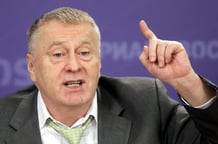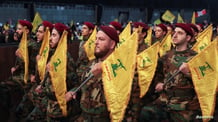The crisis in Syria, also known as the Syrian Civil War, is a conflict among different groups with multiple agendas. But the conflict is broadly between the government and anti-government groups in Syria. Civil war has already brought enormous negative impacts including the deaths of around 500000 people, injuries of hundreds and thousands of civilians (including children) and displacements of around 12 million people from their home places as refugees and internally displaced persons (IDPs). Moreover, the conflict made socio-economic conditions vulnerable through devastating infrastructure (including school buildings, health facilities, roads and supply lines), damaging heritage sites, hindering economic activities, violating various human rights, etc. Surely, it has significant impacts on the region and beyond. But the positive side is that civil war is now almost ended, since President Bashar al-Assad, with the backing of Iran and Russia, seems to have emerged militarily victorious from the conflict.
It is notable that the Syrian Arab Republic, home to about 22 million people, has been historically under authoritarian rule by the Ba’ath Party for more than 40 years. President Bashar al-Assad took over from his father — Hafez al-Assad — in 2000. With some variations, extreme repression on oppositions and gross violations of various human rights continued for decades. Also, some other factors such as economic fragilities, inequitable distribution of natural resources, sectarian fragmentation, social discrimination, rising poverty and rising discontents had considerably augmented in recent years. Contrarily, religious extremism and sectarianism had considerable presence and played vital roles in several earlier upheavals against rulers. While anti-government segments caused religious extremism, other segments including the Alawite — the ruling sect — caused extreme sectarian fragmentation.
Amidst such a background, the present crisis began with the protests of arrests and torture of some young people who wrote anti-al-Assad graffiti on a wall in 2011, particularly at the initial phase of Arab Spring that was started in Tunisia. The government’s crackdown on protesters with killings and further arrests increasingly spread protests across the country. Amid the protests and the government’s forceful reactions, some of the Syrian Army defected and formed the Syrian National Coalition and began fighting against the President. As the fighting spread further, many others including Syrian Islamists and Syrian Kurds joined the conflict. But situations became more complicated due to the direct involvement of some regional countries and non-state groups including Hezbollah in the confrontation especially in 2012.
Afterward, the involvement of the Islamic State of Iraq and Levant (ISIL) in 2014 further deteriorated the crisis in Syria. The ISIL created a separate regime in parts of Syria and established a de facto kingdom, which continued for several years. Moreover, the engagement of some states or global powers with direct military, weapons and other logistic supports made the situation very complex very quickly. More specifically, Russia has consistently been providing all-out supports to the regime including continuous attacks on anti-Assad forces. Others, including the United States, have mainly been supporting some opposition forces with logistics, occasional attacks on forces loyal to Assad and military strikes on the ISIL. Of course, ISIL is now defeated and, as noted earlier, Syria is mostly under the control of the current president.
But important questions remain on the solution to the displacement crisis and the sustainable and lasting solution to the very crisis in Syria. In fact, forced displacement is a major concern. The United Nations Refugee Agency (UNHCR) estimates that 5.6 million people have fled Syria since the civil war started. Its settlement in terms of the repatriation of millions of Syrian refugees and internally displaced persons (IDPs), as expected, should be ensured with political negotiations. I think that refugees willing to come back to Syria should be given an adequate opportunity with their rights as natural citizens and their rights over their lands and other possessions without any discrimination based on any grounds; simultaneously, IDPs need to have the same rights over their lands and other possessions in their home places. At present, nonetheless, there are fears among many refugees that if they return to claim their properties they may face negative consequences including forced imprisonment.
Of course, the undeniable fact is that the fighting is not over in Syria altogether. In fact, the north-western Idlib is not under the control of the government. In 2020, clashes occurred between the Turkish forces and opposition armed groups in Idlib. The skirmishes can be rendered as a reminder that the conflict may still escalate, even if the possibility is low because of inadequate support to opposition forces and their reduced strengths. In fact, the situation in the northeast region where Turkish, Syrian and Russian forces are deployed, alongside proxies and Syrian Kurdish militias, is not yet stable. Moreover, there are enormous challenges to economically, politically and socially rebuild the country devastated by the long fighting, even if it ends soon.
A lasting solution is, thus, needed to the very crisis in Syria. In this respect, there seems no alternative to a political solution. In fact, military-based steps alone may not bring any lasting solution to the crisis that has many reasons including social, economic and political discontents. The political solution should be negotiation-based. Political negotiations may be held with or without forming a constitutional committee, comprised of conflicting groups (including the regime) and civil society. But the negotiation-based solution should not unreasonably deprive any Syrian group or person including oppositions. An agreement on the punishment or forgiveness of persons or groups responsible for long conflicts is undoubtedly an important point. Ideally, all persons — including persons in the regime and opposition sides — responsible for the killings of civilians, devastations and other negative consequences should be brought under justice. But the Syrian crisis is so widespread and complex that such an effort may further complicate the situation.
Now, the vital question is: who will mediate for political negotiations among Syrian parties? In my opinion, the UN is the most preferred and needs to play vital roles in this regard. Even if all oppositions may not be brought to the negotiating tables, some groups especially first-order groups that are vital for the viability of Syria need to be. But, of course, the United Nations needs to secure negotiations with deft diplomacy. Negotiations may be held in any third country venues rather than Syria. Once agreements are made among parties, the commission should also supervise subsequent developments. To the successful political solution, yet, there are some challenges — within and outside Syria — which need to be taken into consideration.
Internal challenges are to be specially mentioned here. Indeed, several Syrian groups with different agendas — and linked with regional and global powers — were involved in the long civil war. In addition, Syria was fragmented into several distinct “zones of control” and different zones were virtually governed by different local players. Though the conflicting parties have some common interests especially in terms of the territorial integrity of Syria, they do not tolerate and trust each other. Because of the near wining of the civil war, emerging challenges may, more importantly, be the unwillingness of the regime to a negotiated political settlement and come to reasonable agreements with vital oppositions or other first-order parties. Thus, convincing first-order parties for political negotiations may be a challenging task.
Of course, regional challenges including regional geopolitics among regional powers — particularly Israel, Turkey, Saudi Arabia and Iran — which played different roles with some variations in the long Syrian conflicts need to be well-addressed. Though great power rivalry is not at a dangerous level at this moment, it was so in the initial years of the conflicts. Of course, Russia took a very firm stand with military forces, weapons and other supports in favor of the regime; in contrast, the United States and its allied states provided some sort of supports to groups that are opposed to the regime (even if there were some changes later). But there is no significant role of the United States in Syria now. But for the great power rivalry, the Security Council was divided and several resolutions were vetoed. Also, regional and global geopolitics may still pose a challenge.
Along with the UN’s efforts, as expected, earnest cooperation from regional states particularly from Saudi Arabia, Iran, Israel and Turkey and cooperation of great powers are certainly very important for the reduction of the external influence on the crisis and convincing vital conflicting parties in Syria to political negotiations. But the positive side is that some regional and global powers want a lasting solution to the crisis. In this respect, something more needs to be done by regional and global powers. Regional and global powers should consider the prioritized interests of the Syrian people over unreasoned geopolitical interests of their states, act more responsibly and cordially on the issue of Syria and cooperate with the United Nations for bringing conflicting parties into discussion and finding a reasonable and lasting solution to the crisis. Of different counties, the earnest roles of Russia are very important here.
Not less important is that the Syria crisis, which is one of the most severe crises in the world, should be resolved on reasonable grounds. Of course, the problem is in Syria and Syrians are mostly sufferers. Thus, different parties in Syria including the regime and vital oppositions need to come forward and cooperate with the United Nations to solve their crisis and make some real efforts for lasting peace. But, undeniably, no lasting solution can be ensured through keeping the military forces of other countries in Syria. But the immediate withdrawal of foreign forces especially the Russian forces may give rise to conflicts again; thus, depending on the situation, all foreign forces should be withdrawn for genuine self-rule in Syria in the coming years.












Comments are closed.